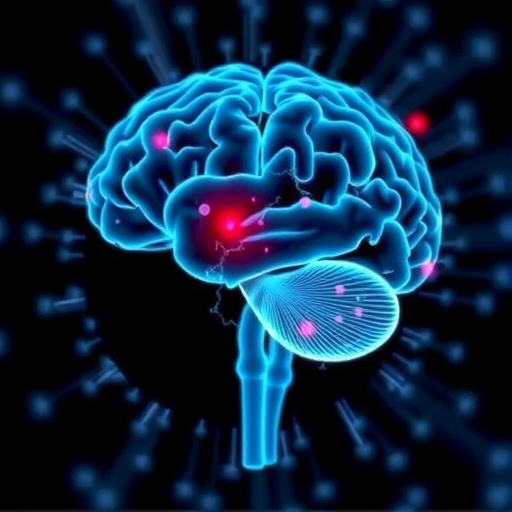Researchers at Lund University in Sweden have unveiled a groundbreaking digital cognitive test designed specifically for primary care settings to aid in the early diagnosis of Alzheimer’s disease. This innovative tool empowers patients to self-administer the test with minimal assistance from healthcare personnel, marking a significant advancement in the early detection of cognitive impairment linked to Alzheimer’s. By streamlining the diagnostic process, this digital test enhances the primary care physician’s ability to identify patients who require further, more specialized investigations, such as blood biomarker analysis for Alzheimer’s pathology.
Unlike traditional pen-and-paper cognitive assessments, which often provide a limited snapshot of a patient’s cognitive function, this digital approach offers a far more nuanced and comprehensive evaluation. The test, known as BioCog, is engineered to measure multiple facets of cognitive performance, including memory retention, attention span, processing speed, orientation, and delayed recall. This multifaceted assessment framework captures subtle deficits that conventional assessments might miss, thereby increasing the accuracy and reliability of preliminary diagnoses of Alzheimer’s disease in everyday clinical environments.
BioCog operates on tablet computers and leverages a user-friendly interface to facilitate independent test-taking by patients, reducing the need for specialized clinical staff during administration. This self-administration model is especially critical in primary care, where resources and specialist expertise are often limited. The test’s design capitalizes on digital technology’s capacity to quantify variables such as reaction time—how quickly a patient processes and responds to information—and detailed search patterns, traits that are nearly impossible to capture through traditional cognitive evaluations.
The timing of this innovation is crucial given the recent advances in disease-modifying therapies for Alzheimer’s disease. Early and accurate diagnosis not only enables timely intervention but also helps target treatments to those most likely to benefit, thereby avoiding unnecessary medication in patients whose cognitive symptoms arise from other causes such as depression or fatigue. The BioCog test aids in stratifying patients by severity and underlying pathology, serving as an essential first-line filter before more invasive or expensive biomarker testing is pursued.
Biomarkers, particularly those detectable through blood tests measuring phosphorylated tau proteins associated with Alzheimer’s pathology, currently require access to specialized memory clinics equipped with advanced diagnostic tools. However, the widespread implementation of digital cognitive testing in primary care could optimize patient referral pathways, ensuring that only those with demonstrable cognitive impairment indicative of Alzheimer’s proceed to biomarker testing. This targeted approach aligns well with resource-efficient healthcare delivery models, alleviating pressure on specialist memory clinics.
The utility of BioCog also extends beyond mere detection; by incorporating metrics previously unavailable through pen-and-paper assessments, such as precise measurement of how long patients take to interact with the test material, it provides clinicians with richer datasets for tailoring clinical decision-making. Such data-driven insights allow for earlier intervention strategies and facilitate longitudinal monitoring of patients’ cognitive trajectories, an important consideration in chronic neurodegenerative diseases.
Professor Oskar Hansson and his team have emphasized that the test’s validation in real-world primary care populations—people actively seeking care for cognitive concerns—lends it a substantial edge over other digital assessments. This focus on applied research ensures that the test performs reliably under typical clinical conditions, not just controlled laboratory environments, thereby increasing its translational value for routine medical practice.
From a technical standpoint, the BioCog test integrates various cognitive domains within a cohesive digital framework. It challenges patients to memorize and recall word lists, tests processing speed through interactive tasks, and evaluates temporal orientation, a critical cognitive function often impaired early in Alzheimer’s disease progression. By combining these sub-tests, the tool generates a composite cognitive score that assists physicians in stratifying patients based on their likelihood of harboring Alzheimer’s pathology.
Furthermore, the sensitivity of the test to subtle changes in cognitive performance over time means it can be deployed not only as a diagnostic tool but also for monitoring disease progression or response to therapeutic interventions. Its digital format also opens avenues for remote administration, a feature particularly attractive in the context of telemedicine and decentralized healthcare delivery models increasingly favored in global health systems.
The development of BioCog comes at a pivotal moment in Alzheimer’s research and clinical practice. With new pharmacological agents reaching the market that modify disease mechanisms rather than merely alleviating symptoms, the demand for scalable, precise, and early diagnostic solutions has never been greater. Digital cognitive testing, as exemplified by BioCog, represents a fusion of clinical neurology and cutting-edge technology that could reshape how dementia care pathways are structured, making them more patient-centric and efficient.
Pontus Tideman, a psychologist and doctoral student involved in the study, highlighted the practical implications of this advancement, noting that “the vast majority of people seeking treatment for memory issues present initially to primary care clinics.” Thus, equipping general practitioners with objective and sensitive tools like BioCog enhances their ability to triage cases effectively, ensuring that those who require further investigation receive timely and appropriate care.
Looking forward, Lund University’s research team envisions broader integration of this digital test into healthcare systems, potentially paired with emerging blood biomarker assays that may soon be available at the primary care level. Such synergy holds promise for a comprehensive, integrated diagnostic framework that could significantly improve outcomes for patients facing cognitive impairment and Alzheimer’s disease worldwide.
In sum, the introduction of BioCog marks a pivotal step toward democratizing Alzheimer’s diagnosis, bridging the gap between specialized memory clinics and primary care settings. This digital innovation not only enhances diagnostic precision but also aligns with the pressing need for resource-efficient and patient-friendly assessment tools in the evolving landscape of neurodegenerative disease management.
Subject of Research: People
Article Title: Primary care detection of Alzheimer’s disease using self-administrated digital cognitive test and blood biomarkers
News Publication Date: 15-Sep-2025
Web References: http://dx.doi.org/10.1038/s41591-025-03965-4
Image Credits: Credit: Ingemar Hultquist
Keywords: Alzheimer’s disease, digital cognitive test, primary care, BioCog, cognitive impairment, blood biomarkers, phosphorylated tau, early diagnosis, neurodegenerative diseases, memory research, disease-modifying treatments, digital health




